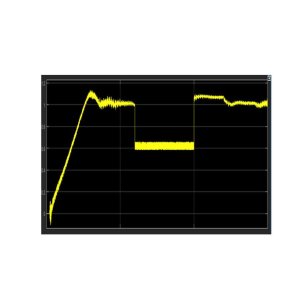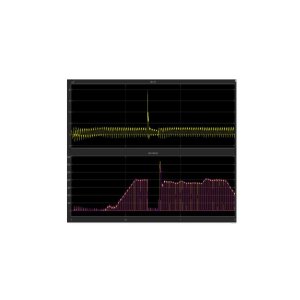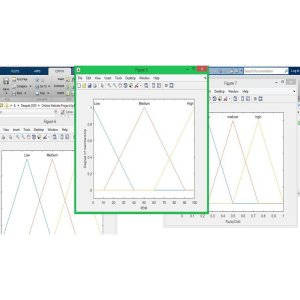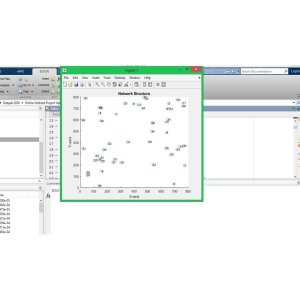Optimizing Data Collection in Wireless Sensor Networks with TDMA Protocol
Problem Definition
Problem Description: The problem of optimizing data collection capacity in arbitrary wireless sensor networks is a key challenge faced by network designers and operators. In order to ensure efficient and reliable data collection in a network, it is essential to understand and address the limitations and bottlenecks that may impact the overall performance of the network. This includes factors such as protocol interference, physical interference, and the number of sensors employed in the network. By studying the capacity of data collection in a TDMA-based sensor network and deriving upper and lower bounds for data collection capacity in arbitrary networks, network operators can develop strategies to maximize the efficiency of data collection processes. Additionally, by exploring methods such as BFS tree-based methods or employing physical interference models, networks can enhance their data collection capabilities and improve overall network performance.
Proposed Work
The proposed work aims to investigate the capacity of data collection in arbitrary Wireless Sensor Networks (WSNs). The study focuses on maximizing the network efficiency by examining the limitations of data collection in a Time Division Multiple Access (TDMA)-based sensor network. The research aims to calculate the network capacity in terms of data collection by analyzing the number of sensors deployed in the network. Upper and lower bounds for data collection capacity in arbitrary networks are derived under protocol interference and disk graph models. The study also aims to achieve order-optimal performance of any network by employing a simple BFS tree-based method.
Furthermore, the research explores methods to enhance data collection in networks under physical interference or Gaussian channel models. This study falls under the categories of JAVA Based Projects and Wireless Research Based Projects, specifically in the subcategories of Parallel and Distributed Systems and WSN Based Projects. The software used for this research includes tools for simulation and analysis of wireless sensor networks.
Application Area for Industry
This project on optimizing data collection capacity in arbitrary wireless sensor networks can be extremely beneficial for various industrial sectors such as manufacturing, agriculture, smart cities, and healthcare. In the manufacturing sector, the implementation of efficient data collection processes can help in monitoring equipment performance, detecting faults, and improving overall production efficiency. In agriculture, these solutions can aid in monitoring soil conditions, crop health, and optimizing irrigation systems. In smart cities, the project can be used for traffic monitoring, waste management, and energy optimization. Lastly, in the healthcare sector, it can assist in remote patient monitoring, tracking medical equipment, and ensuring timely data transmission for critical patient information.
By addressing specific challenges such as protocol interference, physical interference, and network capacity limitations, the proposed solutions of deriving upper and lower bounds for data collection capacity can significantly improve the reliability, efficiency, and performance of wireless sensor networks in these industrial domains. The implementation of methods such as BFS tree-based methods and physical interference models can further enhance data collection capabilities and overall network performance, leading to increased productivity, cost savings, and improved decision-making processes in various industries.
Application Area for Academics
The proposed project on optimizing data collection capacity in arbitrary wireless sensor networks holds immense potential for both MTech and PhD students in the field of wireless sensor networks research. By investigating the capacity of data collection in TDMA-based sensor networks and deriving upper and lower bounds for data collection capacity in arbitrary networks, students can explore innovative research methods, simulations, and data analysis techniques for their dissertations, theses, or research papers. The project's relevance lies in addressing key challenges faced by network designers and operators, such as protocol and physical interference, and the number of sensors in the network. MTech students and PhD scholars can utilize the code and literature of this project to delve into field-specific research areas like Parallel and Distributed Systems and WSN based projects. By employing BFS tree-based methods and physical interference models, researchers can enhance data collection capabilities and improve network performance.
The proposed work not only provides a valuable opportunity for students to engage in cutting-edge research but also opens doors for future advancements in the field of wireless sensor networks. The potential applications of this project in research are vast, offering a promising avenue for students to pursue innovative studies and contribute to the advancement of network efficiency and performance.
Keywords
Wireless Sensor Networks, Data Collection, Optimization, TDMA, Capacity, Protocol Interference, Physical Interference, Network Efficiency, Upper Bounds, Lower Bounds, BFS Tree-Based Methods, Wireless Research, Parallel Systems, Distributed Systems, WSN Projects, JAVA, Netbeans, Eclipse, J2SE, J2EE, ORACLE, JDBC, Swings, JSP, Servlets, Localization, Networking, Routing, Energy Efficient, MANET, WiMax, Simulation, Analysis.
| Shipping Cost |
|
No reviews found!




















































No comments found for this product. Be the first to comment!